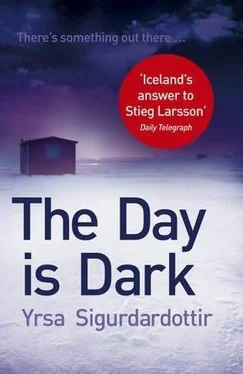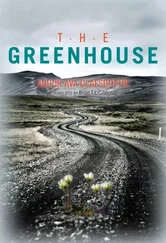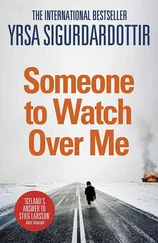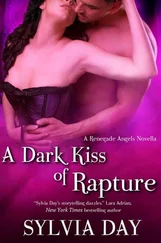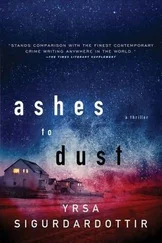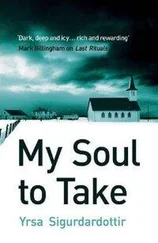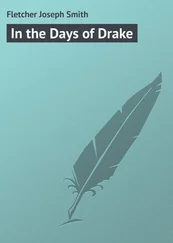Yrsa Sigurdardóttir - The Day Is Dark
Здесь есть возможность читать онлайн «Yrsa Sigurdardóttir - The Day Is Dark» весь текст электронной книги совершенно бесплатно (целиком полную версию без сокращений). В некоторых случаях можно слушать аудио, скачать через торрент в формате fb2 и присутствует краткое содержание. Жанр: Детектив, на английском языке. Описание произведения, (предисловие) а так же отзывы посетителей доступны на портале библиотеки ЛибКат.
- Название:The Day Is Dark
- Автор:
- Жанр:
- Год:неизвестен
- ISBN:нет данных
- Рейтинг книги:5 / 5. Голосов: 1
-
Избранное:Добавить в избранное
- Отзывы:
-
Ваша оценка:
- 100
- 1
- 2
- 3
- 4
- 5
The Day Is Dark: краткое содержание, описание и аннотация
Предлагаем к чтению аннотацию, описание, краткое содержание или предисловие (зависит от того, что написал сам автор книги «The Day Is Dark»). Если вы не нашли необходимую информацию о книге — напишите в комментариях, мы постараемся отыскать её.
Already an international bestseller, this fourth book to feature Thóra Gudmundsdóttir ('a delight' – Guardian) is chilling, unsettling and compulsively readable.
The Day Is Dark — читать онлайн бесплатно полную книгу (весь текст) целиком
Ниже представлен текст книги, разбитый по страницам. Система сохранения места последней прочитанной страницы, позволяет с удобством читать онлайн бесплатно книгу «The Day Is Dark», без необходимости каждый раз заново искать на чём Вы остановились. Поставьте закладку, и сможете в любой момент перейти на страницу, на которой закончили чтение.
Интервал:
Закладка:
He had nowhere else to turn. He couldn’t imagine living with his mother, even though he fitted perfectly into the environment there. No, he couldn’t stand the sight of her, and the feeling was mutual. They had two things in common: they were both slaves to alcohol and they despised each other. Neither of them reminded the other of how life was before the alcohol took over completely, when it was still possible for them to enjoy pleasant moments without being drunk. Nor could he go and live with his father, who would kill him; there was no question about that. Fortunately, Naruana had seldom run into him in recent years, but when it happened, he found the old man’s overwhelming indifference suffocating. He looked down at his toes and saw that they were dirty, which came as no surprise. They had looked like that since he could remember; the only difference was the nature of the dirt. The dirtiness of his youth had been natural dirt that had gathered on him outdoors. The grubbiness he saw now came from the filth that filled every corner of the house.
So it was a strange coincidence that that morning he had spotted both his father and these outsiders, who until that point he had heard of but not seen. At least not that he recalled. He could very well have seen the group drive through the town before, but he would have been drunk and therefore unable to recall it. However, he thought this unlikely. He would have remembered it; not to have done so was impossible. This visit was such bad news that no amount of alcohol would have been able to erase it from his mind. He stared at the curtains and breathed deeply, suddenly seized with the desire to go out; find his old, worn-out work coverall, load his rifle and go hunting. For a moment he was filled with a sense of joy that he didn’t know he could still feel; his headache disappeared and the cut on the back of his hand stopped hurting, although it had been bothering him for days. Then he remembered that he had traded his treasured rifle for a case of beer, and as a result was no more on his way to a hunt than a weaponless girl. It was no wonder his father hated him so much – he had given him the rifle as a gift when Naruana turned sixteen, and the weapon had cost his father a considerable portion of his summer wages. Naruana hoped his father was unaware of the fate of the firearm, but part of him realized that the old man seemed to know everything and see everything even though he was nowhere near. Naruana could only hope that Igimaq didn’t know what his son had done, how low he had stooped. Hope that he hadn’t seen him as he stood there, his hands stained with the blood of a prey no hunter would boast about.
His headache returned and his hand hurt even more than before.
Chapter 13
Thóra watched as Matthew and Dr Finnbogi walked up to yet another house, knocked on the door and waited patiently for someone to answer. No house had looked more like a public building than the others, so they had had to resort to simply going door to door. There was no one out on the streets to ask for information. At first Thóra had accompanied Matthew and Finnbogi, but when it seemed clear that their efforts would provide little or no result she decided instead to wait in the car and make an attempt to warm herself up. The humidity in the air as a result of the fog made it considerably colder. She was chilled to the bone and cursed herself for the stupidity of her packing as she sat there in her borrowed gloves and hat in the car’s back seat. She watched Matthew and Finnbogi fidget on the doorstep and make another attempt to get someone to answer. Then they knocked on the door so loudly that the noise carried all the way into the car. They waited a moment before moving on to the next house. A mist had started to form on the windows and Thóra reached out over the seat to wipe it off, so that she could keep better track of the two men’s movements. When she leaned back in her seat again she gripped her chest with both hands and let out a low cry. Someone was standing right next to the car, staring at her.
She was an apparently young woman, although it was difficult to discern her age due to the fog on the window as well as her thick clothing. Her face was expressionless as she stared straight at Thóra, who fought to regulate her heart rate. The woman stood that way for several seconds, and when Thóra got sufficient hold of herself to roll down the window she continued to stand there like a statue. The only thing differentiating her from a shop-window mannequin was the occasional blink of her dark eyes. More than anything else Thóra wanted her to leave, but if she drove the woman away Matthew and Finnbogi would kill her, after they’d trudged through the village from end to end in search of residents to speak to.
‘Good day,’ said Thóra in Danish. ‘Can I help you?’ Her voice sounded shrill and she spoke unnecessarily loudly.
At first the woman just stared back at her, causing Thóra to think that perhaps she did not speak Danish. Before Thóra could give English a try the woman opened her mouth and spoke. What could be seen of her face suggested that she was young, between twenty and thirty. Her face was strong and her high cheekbones were further emphasized by the redness of her cheeks. Her eyes were dark and clear, but the yellowish tinge to their whites ruined her otherwise healthy appearance. ‘You shouldn’t be here,’ said the woman. A dull odour of alcohol was carried into the car on her breath, which formed thin white clouds in the cold air.
‘In the village?’ asked Thóra. ‘We just wanted to ask a few questions. There are two men lost, and they might possibly have come here.’
‘You should go home,’ said the woman, still staring at Thóra expressionlessly. ‘Back to your home. Wherever that is.’
‘We’re leaving soon.’ Thóra wished that she understood what was going on. Now her Danish would really be put to the test. She started speaking and although her vocabulary was childish she hoped that the gist of what she wanted to say came across. ‘Are you opposed to the project or did the employees of the Icelandic company do something to you?’
The woman gave Thóra an inquisitive look, not unlike the one Thóra had just given her. ‘You’re staying in a bad place. No one should be there. Go home.’
‘How is it bad?’ Thóra pressed the button to roll the window all the way down. She did this without thinking, as if it were the windowpane separating them that made her unable to understand what the woman was talking about.
‘Bad.’ The woman appeared impatient, showing a reaction at last. ‘You don’t need to understand why. Just believe me. Take your friends and leave and don’t come back.’
‘Why are you telling me this?’ Thóra wondered whether this strange conversation would be any easier if she stepped out of the car and they stood side by side.
‘You’ll have to pay me for more information.’ The woman had become stony faced again. Thóra did not know how she should answer. She had no money with her, apart from several hundred nearly worthless Icelandic krónur, which was probably fitting as she didn’t expect the information she was buying to be worth much. ‘I need to know more than that if I’m supposed to pay you.’ Hopefully Matthew or the doctor had some money with them. Matthew must have taken out some Danish currency, just in case. In most things he was the perfect opposite of Thóra, who trusted more often than not in God and luck.
‘You won’t get anyone else to talk to you. The people here don’t want anything to do with you.’ The woman’s eyes narrowed and she appeared lost in thought. ‘It’s not a good time for me – otherwise I wouldn’t be talking to you. How much do I get for talking to you?’
Читать дальшеИнтервал:
Закладка:
Похожие книги на «The Day Is Dark»
Представляем Вашему вниманию похожие книги на «The Day Is Dark» списком для выбора. Мы отобрали схожую по названию и смыслу литературу в надежде предоставить читателям больше вариантов отыскать новые, интересные, ещё непрочитанные произведения.
Обсуждение, отзывы о книге «The Day Is Dark» и просто собственные мнения читателей. Оставьте ваши комментарии, напишите, что Вы думаете о произведении, его смысле или главных героях. Укажите что конкретно понравилось, а что нет, и почему Вы так считаете.
